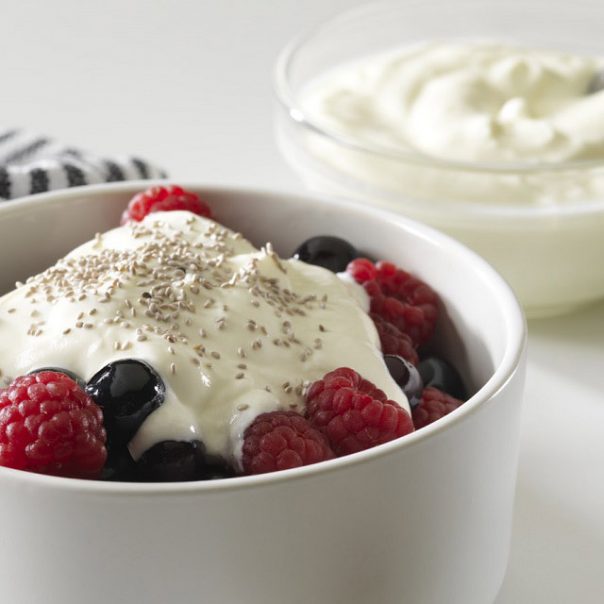Nowadays when we pop into a cafe we are greeted with the ever-growing plethora of different versions of our favourite caffeinated (or non-caffeinated) drinks. From espresso to batch brew and pour over, the coffee options are endless! And to make things even more confusing, you’ll usually find at least three or four variations of milk to choose from, too.
The incredible growth of the plant-milk industry in recent years can be attributed to a number of things, from dairy intolerances to the rise of veganism and plant-based diets, as well as a growing concern around the ethics and sustainability of the dairy industry.
Here in Australia, research from Dairy News Australia shows that sales in dairy alternatives have grown by 48% in the past four years alone.
It’s hard to imagine now, but as recently as 2008, having an alternative to cow’s milk largely meant soy milk, unless you were willing to spend a whole lotta time and cash scouring health food shops. Thankfully now, in 2019, there is no shortage of alternatives to dairy. Just walk into your local cafe or supermarket and the choices are seemingly endless. From different tastes and textures to different benefits and environmental impacts, it can be tough to choose which plant-based milk is right for you.
To celebrate World Plant Milk Day this month, we’ve compiled a bit of a roundup of our favourite dairy alternatives, with some insights that might make your choice just a little easier:
Soy Milk:
Let’s start with the original ‘alt-milk’. Soy milk is still the most widely available option. It’s made by either ground soybeans or soy protein powder, reconstituted with water and often adjusted with oil (and often sugar) to create the consistency and taste of cows milk. Soy milk is a good source of protein providing 7-12 grams in a 250ml glass and is often fortified with calcium and Vitamin D. Soy milk contains very little saturated fat but watch those added sugar levels…best to read the back of the carton!
Almond Milk:
Almond milk is made from ground almonds and filtered water. It’s lower in calories than other types of milk with just half the amount found in a glass of skim dairy milk, as long as it is unsweetened. It’s also free of saturated fat, and it’s naturally lactose-free. Almond milk is a good source of vitamin A and can be fortified to be a good source of calcium and vitamin D.
Coconut Milk:
Coconut water is the liquid inside a coconut, while coconut milk comes from the fruit’s white flesh. Coconuts contain a lipid called lauric acid, and many researchers believe that lauric acid can support the immune system and has antiviral and antifungal effects on the body. Coconut milk does contain high levels of saturated fat, but it also boasts a long list of vitamins and minerals. The nutritional contents of coconuts can vary due to a range of environmental factors so again, it pays to check the back of the carton!
Oat Milk:
Oat milk is a great choice for people with allergies or intolerances. It’s naturally free of lactose, nuts, soy, and gluten if made from certified gluten-free oats. It is an excellent source of many vitamins and minerals, as well as fibre to help keep you full. Commercial oat milk is also a good source of vitamin B12, which has been linked to healthy bones and a lower risk of osteoporosis.
Pea Milk:
The newest non-dairy alternative on the block. It’s nut-free, soy-free, and gluten-free. It’s better for the environment than other kinds of milk with much smaller water and carbon footprints. Pea milk is sugar-free and has 8 grams of protein per serving and 50% more calcium than other alternative milks. And don’t worry, Pea Milk doesn’t taste like peas!


